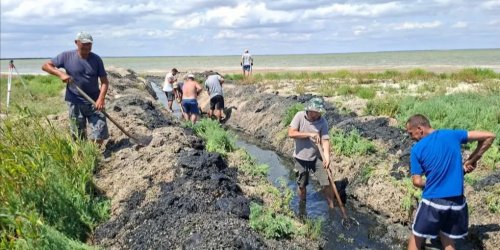The European Parliament and the Council of the European Union have reached a preliminary agreement to update EU rules on environmental crimes and sanctions to strengthen ecosystem protection.
Polluters will face not only fines but also prison terms, the European Parliament's website says.
It is noted that the new rules will include offenses similar to ecocide with catastrophic results, such as massive pollution or large-scale forest fires. The rules contain an updated list of environmental-related acts that qualify as criminal offenses at the EU level and related sanctions. This will ensure more effective application of EU environmental legislation, as such crimes are the fourth largest criminal activity in the world.
The report said that the updated list will be supplemented:
- import and use of mercury and fluorine-containing greenhouse gases;
- import of invasive species;
- illegal depletion of water resources;
- pollution caused by ships.
The EU also agreed on stricter sanctions. Individuals, including company representatives, who have committed environmental crimes resulting in death may be imprisoned for up to 10 years. Qualified crimes will be punishable by imprisonment for up to eight years. Punishment for other criminal offenses will be five years in prison.
It is noted that violators will also face fines and obligations to restore the damaged environment or to compensate for the damage caused. In addition, the company's license may be revoked, it may be denied access to state funding, or it may be closed.
Member countries will be able to charge offending companies 3 or 5% of annual global turnover, depending on the nature of the crime, or choose fixed amounts of 24 or 40 million euros.
The message emphasized that special training will be conducted for judges, prosecutors and police officers. Also, member states will organize awareness campaigns to reduce environmental crime and create a fund for its prevention.
Member States will also have to prepare national strategies to combat environmental crime and collect relevant statistics. The European Commission will have to regularly update the list of criminal offenses.
"We have successfully achieved a position of zero tolerance for environmental crimes, which have huge consequences for human health and the environment. It is imperative that we tackle these cross-border crimes at EU level with coherent, dissuasive and effective sanctions to prevent new environmental crimes Prevention is key," said MEP Antonius Manders.
It is noted that the document still needs official approval from the Committee on Legal Affairs, the European Parliament and the Council before it enters into force.
As EcoPolitic reported earlier, in March, the legal affairs committee of the European Parliament voted unanimously to strengthen sanctions for persons guilty of environmental crimes, namely fines of up to 10% of the company's turnover and imprisonment for a term of 4 to 10 years.





